MercoPress. South Atlantic News Agency
Environment
-
Monday, May 10th 2021 - 06:08 UTC
Falklands closes first Loligo season earlier; successful catch anticipated

The Falkland Islands Loligo (Falkland Calamari) fishery, which holds two seasons a year, closed its first season of 2021 early – the northern part of the box on April 14 and the south on April 28, three days before the planned last day of May 1.
-
Friday, May 7th 2021 - 08:40 UTC
LATAM Airlines goes environment conscious for the years to come

LATAM Airlines Group has launched Wednesday in Santiago, Chile, an environmentally conscious plan for the coming years named LATAM Group Sustainability Strategy, to offset 50% of emissions from its domestic operations by 2030.
-
Thursday, May 6th 2021 - 06:59 UTC
Worms become Europe's first edible insects, others may follow suit soon

European Union countries may no longer need to import food from places like Mercosur and Brexiteers have certainly saved the United Kingdom from being a part of a worm-eating alliance.
-
Wednesday, May 5th 2021 - 06:47 UTC
US Government praised for joining conservation efforts in Antarctic Southern Ocean

The government of the United States has been praised by The Pew Charitable Trusts for its decision to co-lead in matters concerning Southern Ocean Marine Protected Areas (MPAs), special climate envoy John Kerry announced during a virtual ministerial meeting hosted by the European Union.
-
Thursday, April 29th 2021 - 09:45 UTC
Science journal: Glaciers melting faster, sea levels on the rise
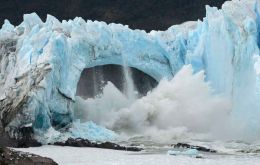
According to a study published Wednesday by the prestigious scientific journal Nature, glaciers are melting at a faster pace than previously thought, which may have serious consequences.
-
Thursday, April 29th 2021 - 07:25 UTC
Chile on track to phasing out coal as source to generate electricity
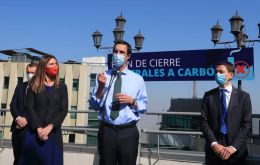
Chilean plans to close half of the country's coal-fired electricity generating plants by 2025, Energy Minister Juan Carlos Jobet assured Wednesday during a ceremony in which the generating company Engie vowed to either close or convert six of the oldest plants by 2024, with a capacity of 800 megawatts (MW).
-
Sunday, April 25th 2021 - 23:21 UTC
World Penguin Day once again celebrated in times of Covid-19
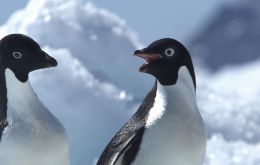
This Sunday, April 25, is World Penguin Day's celebration, a creation by researchers at the McMurdo Station, an American scientific center on Antarctica's Ross Island to mark every year's migration of Adeline penguins to the north.
-
Friday, April 23rd 2021 - 23:33 UTC
Royal Navy takes bomb disposal experts to South Georgia to remove Falklands War munitions
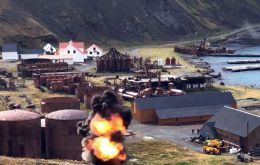
The Royal Navy's HMS Forth has taken bomb disposal specialists to South Georgia as part of a mission to protect the island's wildlife. The ten-day environmental mission set out to remove bombs and ordnance left behind during the Falkland Islands conflict involving the Argentine armed forces in 1982.
-
Friday, April 23rd 2021 - 05:07 UTC
Biden's climate summit starts on Mother Earth's Day

US President Joseph Biden Thursday pledged to reduce his country's greenhouse gas emissions by at least half by 2030 during the opening speech of a virtual Climate Summit he convened featuring several world leaders and which is regarded as a preliminary encounter leading up to the UN Climate Change Conference in Glasgow this coming November.
-
Thursday, April 22nd 2021 - 09:15 UTC
Uruguay tops Latin American transition to environment friendly energy sources
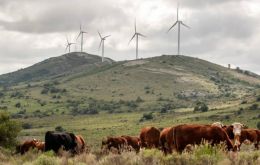
Uruguay continues to be Latin America's leading country regarding energy transition towards renewable sources, according to an index released jointly this week by the World Economic Forum and the Accenture consultancy firm.
